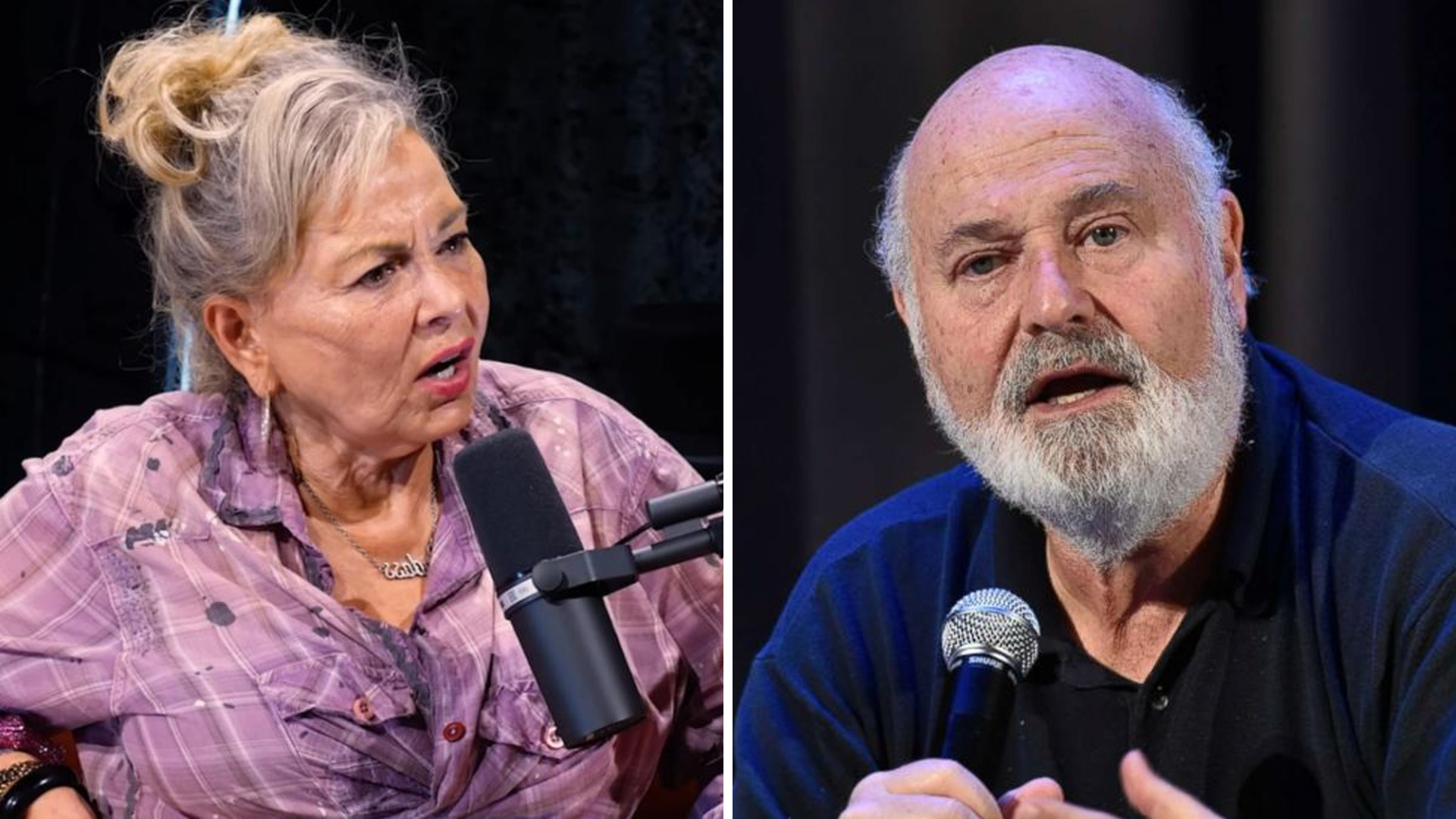
‘Roseanne Barr Takes a Stand: Throws Rob Reiner Out of Her New Fox Show, Declaring ‘Enough of Your Wokeness!’
Roseanne Barr, known for her bold and often controversial style, has made headlines again with a new project on Fox. This venture initially brought together Barr and acclaimed director Rob Reiner, known for his successful films and industry expertise.

The term “wokeness” has become a divisive issue in today’s cultural climate, referring to an increased awareness of social and political matters, particularly those involving race, gender, and equality. While some hail this heightened consciousness as progress, others, like Roseanne Barr, view it as excessive and detrimental to free expression and creativity.
The clash between Barr and Rob Reiner illustrates this divide, as Barr reportedly found Reiner’s approach overly infused with social and political themes, conflicting with her vision for the project.
This situation highlights the deepening polarization within Hollywood, where the struggle to strike a balance between creative freedom and social responsibility has become increasingly intricate and contentious.
From a business standpoint, Barr’s decision to part ways with Reiner raises questions about the potential impact on the show’s success. Television networks and producers face the ongoing challenge of producing content that appeals to a wide audience while remaining commercially viable and aligning with diverse social values.
Roseanne Barr’s stance against “wokeness” appeals to a segment of the audience who may feel disconnected from the growing incorporation of social and political themes in entertainment. However, this approach also runs the risk of alienating viewers who appreciate these perspectives.
Barr has been clear about her intention to produce a show that aligns with her views and comedic style, emphasizing traditional sitcom humor and steering away from overt political or socially charged content.
This reflects a larger conversation within the television industry: Should shows primarily entertain, or should they also serve as vehicles for social commentary and change?
The fallout between Barr and Reiner could signal a shift in how television content is conceptualized and produced. As creators and networks navigate the complexities of audience expectations and cultural sensitivities, the narratives and methods of presentation may undergo significant changes.
For creators like Barr, this situation presents both a challenge and an opportunity. The challenge is to produce content that is both successful and consistent with their artistic vision. The opportunity is to carve out a distinct niche in an industry that is increasingly diverse in its offerings and messaging.
Comedy has long been a mirror to society, often pushing boundaries and questioning norms. The incident between Barr and Reiner prompts a reevaluation of comedy’s role in our society. Is its primary function to offer escapism, or can it be a medium for social reflection and critique?
In summary, Roseanne Barr’s decision to part ways with Rob Reiner from her new Fox show due to concerns about “wokeness” marks a pivotal moment in the television industry. It underscores the changing landscape of content creation, where the convergence of comedy, art, and social consciousness presents new challenges and opportunities.


